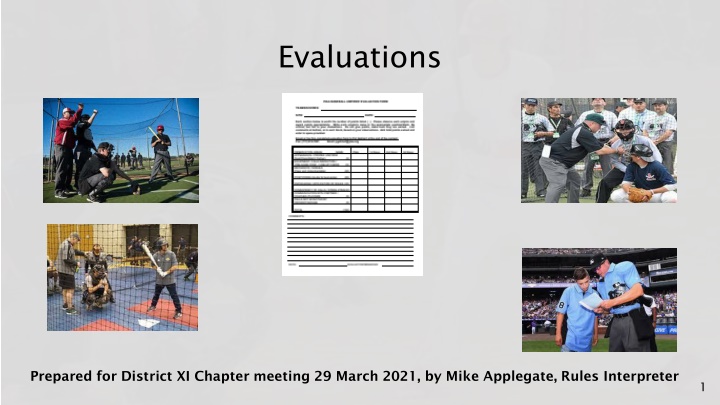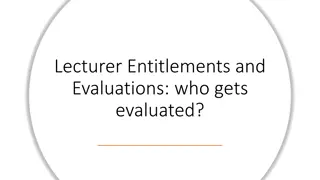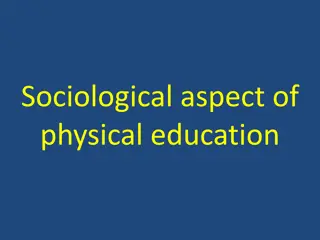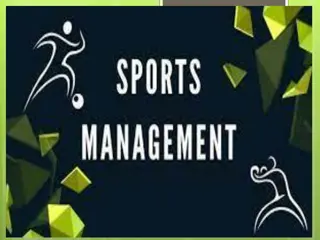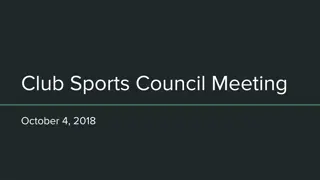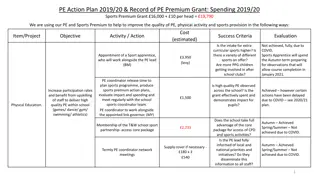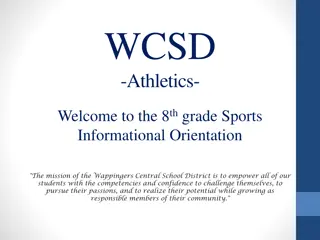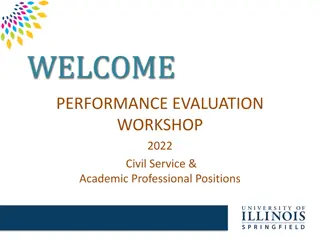Evaluations in Work and Sports: A Comprehensive Overview
Evaluations play a crucial role in both professional settings and sports, aiding individuals in identifying strengths and areas for improvement. This article discusses the significance of evaluations at work and on the baseball field, highlighting different evaluation sources such as coaches, independent evaluators, self-assessment, and partner evaluations. Understand the importance of feedback and assessment for personal growth and success.
Download Presentation

Please find below an Image/Link to download the presentation.
The content on the website is provided AS IS for your information and personal use only. It may not be sold, licensed, or shared on other websites without obtaining consent from the author.If you encounter any issues during the download, it is possible that the publisher has removed the file from their server.
You are allowed to download the files provided on this website for personal or commercial use, subject to the condition that they are used lawfully. All files are the property of their respective owners.
The content on the website is provided AS IS for your information and personal use only. It may not be sold, licensed, or shared on other websites without obtaining consent from the author.
E N D
Presentation Transcript
Evaluations Prepared for District XI Chapter meeting 29 March 2021, by Mike Applegate, Rules Interpreter 1
Evaluations Whether at work, in our every day life, or on the baseball field individuals strive for improvement in their performance. At your job you may be subjected to periodic performance reviews which should be used to identify your needs to succeed as an employee and enable you to climb the ladder within the company. On a baseball field evaluations are performed for the same reason to identify areas where you excel and areas where improvement is needed, so that you can hone those skills and improve as an official so that you can work the big games . Unless you are satisfied with your level of success, objective evaluations by objective observers can be used to measure the skills you possess as an official and where you need to improve in order to advance to the next level. Evaluations should be used as assessment and improvement tools and not for negative reasons. 2
Evaluations There are 4 different sources for an evaluation: 1. Coaches: Least objective / most subjective Often fueled by and filled with emotion if they win you are the best umpire in the world ; - if they lose you are the worst they ve ever seen , even though their team had multiple errors, 2 hits, and couldn t pitch. Probably neither are close to accurate. Most often the coaches just don t want to be bothered. For the most part coaches have no idea what is considered proper positioning or who is responsible for which call at which base or in what part of the field. 3
Evaluations 2. Independent and objective Evaluator Probably the most objective and accurate source of performance. Usually performed by experienced individuals who understand and recognize how an umpire should perform. The evaluator can focus on all facets of the game. At the high school level these types of evaluators are usually reserved for playoff situations and dictated by the league / district / state. 4
Evaluations 3. Self Self assessment can be a valuable source of feedback. Used when an umpire realizes he s made a mistake or lacks a certain skillset. Why did I miss the pulled foot? Why did I miss the swipe tag? Why was I out of position? It forces you to be honest with yourself and may identify areas where you need to re-focus. Is it a rules issue? A mechanics issue? A timing issue? 5
Evaluations 4. Partner Partners evaluating partners are the best tool we have available right now at the high school level. This methodology provides immediate feedback and is a valuable learning tool. It should be performed at every game and an open discussion should follow at the end of the game. When you start evaluating your partner s performance you are also evaluating your own performance. You wind up comparing how he does things against how you do things against the correct way of doing things. Both partners benefit. Honesty is key. If your partner struggled with an aspect of the game you owe it to him to speak up. This interaction will improve his performance and may influence yours. But your partner must be willing to listen and want to improve. 6
Evaluations Evaluation factors to consider which are common to plate and bases: Rules Knowledge does he know the rules and does he enforce them as written? Demeanor does he maintain a positive attitude in all situations or does he allow participants to affect his demeanor and how he handles situations? Appearance does he wear the proper uniform and is his appearance neat and professional? Fraternization does he avoid excessive, casual, and unnecessary conversations with coaches and players? Approachable does he allow coaches to discuss situations without becoming argumentative? 7
Evaluations Game Control / Situation Management does he focus on all aspects of the game? Does he control dugout issues and issues between teams? Does he know how to resolve and diffuse difficult situations? Crew Mechanics does he use proper verbal and non-verbal communications? Does he handle all of his responsibilities during play? Does he use clear signals with the appropriate voice? Do you know where your partner is? Hustle and Mobility does he move from his starting position to get to the proper position ahead of the call? Does he exhibit false hustle in order to draw attention to himself? Hey! Look at me! Does he utilize the principle of angle over distance? 8
Evaluations Plate specific evaluation factors: Consistency/Judgement/Interpretation of the HS strike zone: Timing / Stance / Stability: Does he maintain a consistent zone from beginning to end? Does he call the limits of the zone without calling unhittable pitches as strikes? Does he use a correct stance to assure he can see the low outside strike? Is his head height correct? Is he locked in on every pitch or is he still moving as the pitch is delivered? Does he move or drift with the pitch, or is he still? Is he tracking the pitch with his eyes? Is his timing appropriate to assure he saw the pitch and came to a decision? Are his strike and ball calls clear and audible? Does he put the ball in play after EVERY dead ball situation? Does he give the count properly and when appropriate? No full counts . 9
Evaluations Base specific evaluation factors: Does he take the correct starting positions A, B, or C, based upon runners? Does he communicate when he is going out on a fly ball? Is he properly set as the pitch is delivered? Does he offer help when requested on checked swings and dropped third strikes? Is he stopped and set when making a ruling or is he still moving? How is his timing? Does he properly use his eyes before making a call ? Does he assure firm and secure possession and voluntary release? Does he support the UIC with pitching changes? Does he take the proper position between innings or during defensive conferences? 10
